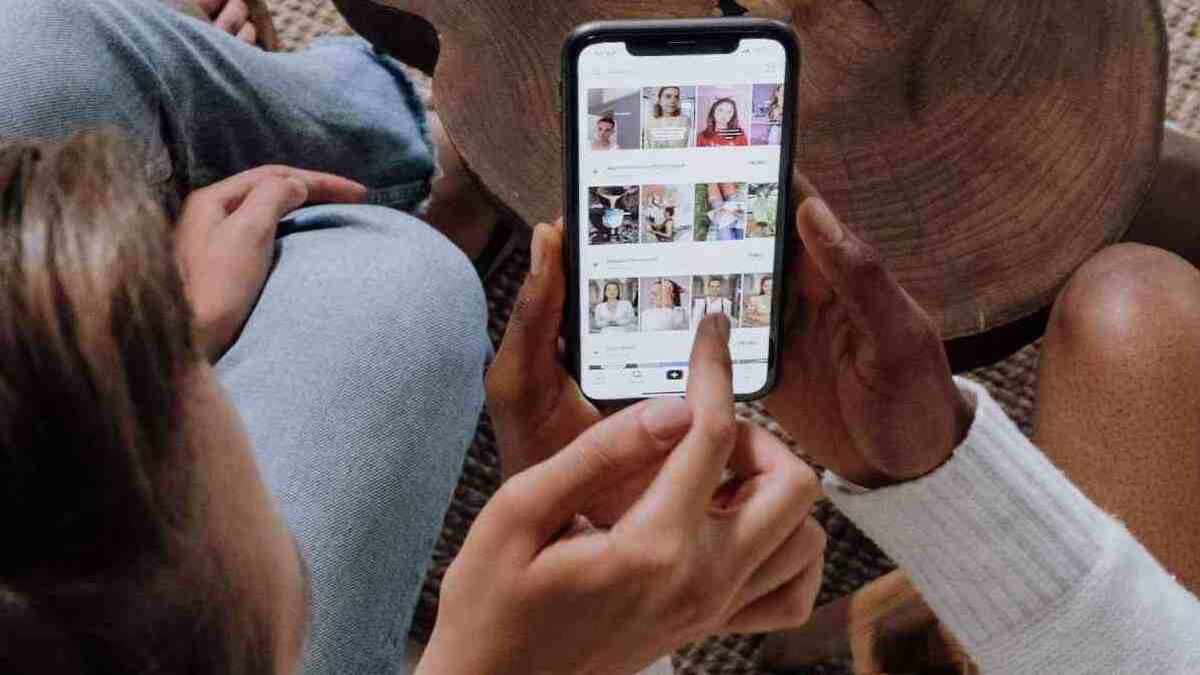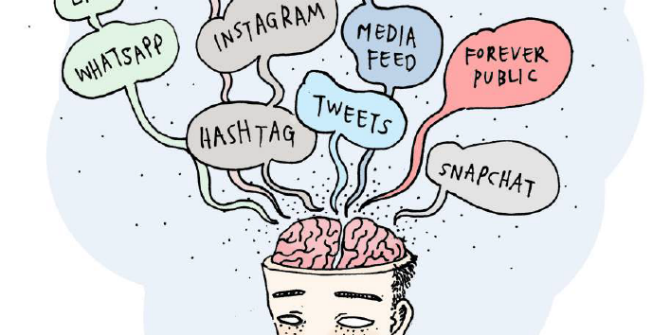 A quarter of UK young people aged 17 to 19 years who lived through lockdowns now have a probable mental disorder, according to new data from NHS Digital. There is growing public and expert concern that young people’s digital activities on the internet may worsen their mental health although the evidence remains contested. LSE’s Dr Mariya Stoilova explains the findings of a new report written with colleagues on the impact of digital experiences on adolescents with mental health vulnerabilities. The report will be launched later today.
A quarter of UK young people aged 17 to 19 years who lived through lockdowns now have a probable mental disorder, according to new data from NHS Digital. There is growing public and expert concern that young people’s digital activities on the internet may worsen their mental health although the evidence remains contested. LSE’s Dr Mariya Stoilova explains the findings of a new report written with colleagues on the impact of digital experiences on adolescents with mental health vulnerabilities. The report will be launched later today.
Does gaining digital skills make a difference to improving young people’s wellbeing outcomes? Do young people develop distinctive skills because of the particular risks and opportunities they encounter online?
To answer these questions, we conducted in-depth interviews with 62 young people aged 12 to 22 in Norway and the UK with experience of mental health difficulties of varying severity, most of whom had received treatment in the recent past. Below we summarise the findings.
You can still reserve a spot for the webinar (30 Nov, 16.00-17.15 pm GMT).
Read the full report or the executive summary.
Active and competent users with a range of sophisticated digital skills
On Twitter sometimes there are feeds trending or threads trending on my feed where it’s like ways to cope. And I have got a bunch of those added to my bookmarks so that I can go to them quickly. (girl aged 17, UK)
The young people we spoke to actively engage with the digital world. They utilise its affordances and shape its parameters, sometimes going against the grain of what was envisioned by design and regulation. This includes their tactics of moving between platforms, curating audiences, and merging app functionalities. Such tactics reveal how young people are taking ownership and shaping their online experiences in ways that serve them.
Young people’s digital encounters are often social and collaborative– they share insights, tips and tactics with online peers or niche online communities in ways that offer support and facilitate coping. They were not only active but also competent internet users.
There were varying levels of skill amongst the participants with younger adolescents being, as a whole, less competent than the older ones, gradually developing digital skills over time. Yet overall, the young people we spoke to were fairly highly skilled with sophisticated knowledge of the digital ecology.
We also found that young people with mental health difficulties are developing particular digital skills that encompass technical, informational, communication and creation skills but also go beyond them. For example, the skill of identifying a callous algorithm, recognising an extreme space or a dangerous person or, more positively, knowing how to game the algorithm to make one’s feed positive or locate ‘safe’ spaces or trustworthy people.
But for young people with mental health difficulties online engagement can also undermine their wellbeing. Online communities can become toxic, helpful material can be mixed with triggering content, coping can be isolating. Hence digital engagement may offer a welcome break but also tends to be difficult and short-lived.
Young people may know about but cannot always deal with the risks they encounter
If there is a lot of negativity and everyone seems to have had a really bad day, then it gets you down a little. (girl aged 17, Norway)
The young people we spoke to devote considerable efforts to anticipating and managing the potential threats, emotional upsets and extreme events that might occur during their digital lives, as well as searching for recognition and support.
They report dynamic journeys in and out of harmful situations linked to fluctuations in mental health. Still, these journeys may contribute to the development of resilience. Experiences of hardship were often understood as part of growing up in a digital world: we heard stories of expanding understanding and competence, growing confidence and maturity, and developing self-efficacy and resilience.
Yet, these stories also revealed episodes of struggle, relapse and “failure” to cope, and of a later recognition of the harmful impact. Hence, young people may know about but cannot always deal with the risks they encounter.
Sophisticated skills do not necessarily make for better mental health and wellbeing outcomes
If Twitter takes down the video, they’ll just send you a link of this app called Dropbox, which downloads any illegal video. (girl aged 17, UK)
The young people who had better digital skills did not necessarily have better mental health and wellbeing outcomes. One important reason for this is that digital skills are thoroughly entwined with the psychosocial life skills that young people are simultaneously developing, including through their lived experience of mental health difficulties. Given the challenges they face, young people do not always manage to put their skills into practice, especially if a mental health difficulty impacts upon their functioning.
Furthermore, the development of digital skills amongst young people takes place in the context of a complex developmental period, characterised by exploration, risk-taking and vulnerability. Some young people were acting against their own knowledge of what’s safe or sensible (e.g., taking risks or daring themselves). This may not reflect a lack of skill or an irrational response but, rather, a different or extended set of digital skills and purposes.
However, we also found that it is not only about the level of youth digital skills. Independent of digital skill, affordances may result in even riskier online engagement shaped by the operation of algorithms. At times this can breach young people’s abilities to counteract and to cope with detrimental consequences.
Skills are not sufficient in a risky-by-design digital environment
My whole feed was just full of ‘what I eat in a day’. But these people … they were eating such tiny amounts. I’m like 12, thinking about it. I eat three meals and then these people are having a strawberry for brunch. (girl aged 14, UK)
The digital environment presents an ever-changing and sometimes problematic set of challenges for young people with mental health difficulties. These challenges arise because digital design and platform policies shape the activities of young people and others they might interact with. Such challenges test young people’s digital skills and at times their skills are insufficient to the task, resulting in unhappy or harmful experiences.
In addition, platform algorithms are often “out of sync” with and insensitive to the young person’s current state of mind or ability to cope. This leads to experiences of triggering, unwanted re-exposure, and setbacks. Algorithms act as a distorting mirror, magnifying problematic content and may push young people with mental health vulnerabilities down a spiral of ever more overwhelming, upsetting or extreme content that they find hard to break away from.
Several young people described becoming aware of how social media algorithms promote problematic content. Recognising one’s own triggers and how they arise is a kind of digital skill that combines self-knowledge with an understanding of the digital ecology. But it’s also a task that’s hard to do.
Not only can it be difficult to anticipate such triggering content, but the activities of others can seem to normalise viewing extreme or ‘toxic’ content, adding peer pressure to accept rather than avoid challenging content. The more that young people engage with this content, the more it becomes a trend – portraying a negative world that feels difficult to escape.
Young people with mental health conditions need better support
It is more helpful to support and just listen instead of explaining again and again … how you have been involved in this situation … because I know that I was stupid. (girl aged 16, Norway)
Young people with mental health conditions face intense risky situations online with problematic real-world consequences. While they are often digitally skilled, reflexive and supported by peers, young people do not feel that parents, educators or clinical professionals acknowledge, understand or respond to their digital problems sensitively or effectively.
Current efforts by public and commercial actors to support young people’s digital skills and agency and address their needs appear insufficient, even counterproductive. Urgent steps are required to regulate and manage the digital environment in ways that vulnerable young people can trust and that meet their diverse and complex needs. Some of our recommendations include:
- Mental health practitioners should get to know about young people’s diverse digital experiences.
- Teaching should cover different types of digital skills, not just technical training or e-safety messages.
- Industry and tech companies should design with young people and their specific needs in mind.
- Government should consider regulation to limit the excessive risks posed to young people’s safety by the actions of commercial providers.
Notes
This text was originally published on the ySKILLS blog and has been re-posted with permission.
This post represents the views of the authors and not the position of the Parenting for a Digital Future blog, nor of the London School of Economics and Political Science.
You are free to republish the text of this article under Creative Commons licence crediting www.parenting.digital and the author of the piece. Please note that images are not included in this blanket licence.
Featured image: photo by Darina Belonogova on Pexels





